Triumph of the Will is a Allemand film of genre Documentary directed by Leni Riefenstahl
Triumph of the Will (1935)
Triumph des Willens

If you like this film, let us know!
- Infos
- Casting
- Technical infos
- Photos
- Videos
- Film quotes
- Characters
- Music
- Awards
Triumph of the Will (German: Triumph des Willens) is a 1935 propaganda film directed, produced, edited and co-written by Leni Riefenstahl. It chronicles the 1934 Nazi Party Congress in Nuremberg, which was attended by more than 700,000 Nazi supporters. The film contains excerpts from speeches given by Nazi leaders at the Congress, including Adolf Hitler, Rudolf Hess and Julius Streicher, interspersed with footage of massed Sturmabteilung and Schutzstaffel troops and public reaction. Hitler commissioned the film and served as an unofficial executive producer;, his name appearing in the opening titles. The film's overriding theme is the return of Germany as a great power, with Hitler as the leader who will bring glory to the nation. Because the film was made after the 1934 Night of the Long Knives (on June 30) many prominent Sturmabteilung (SA) members are absent since they were murdered in that Party purge organized and orchestrated by Hitler to replace the SA with the Schutzstaffeln (SS) as his main paramilitary force.
Triumph of the Will was released in 1935 and became a prominent example of propaganda in film history. Riefenstahl's techniques—such as moving cameras, aerial photography, the use of long focus lenses to create a distorted perspective, and the revolutionary approach to the use of music and cinematography—have earned Triumph of the Will recognition as one of the greatest propaganda films in history. Riefenstahl helped to stage the scenes, directing and rehearsing some of them at least fifty times. Riefenstahl won several awards, not only in Germany but also in the United States, France, Sweden, and other countries. The film was popular in the Third Reich, and has continued to influence movies, documentaries, and commercials to this day. However, it is banned from showing in Germany owing to its support for Nazism and its numerous portrayals of the swastika.
An earlier film by Riefenstahl—Der Sieg des Glaubens—showed Hitler and SA leader Ernst Röhm together at the 1933 Nazi party congress. After Röhm's murder, the party attempted the destruction of all copies, leaving only one known to have survived in Britain. This can be viewed at the Internet Archive. The direction and sequencing of images is almost the same as that Riefenstahl used in Triumph of the Will a year later.
Frank Capra's seven-film series Why We Fight is said to have been directly inspired by, and the United States' response to, Triumph of the Will.
Synopsis
The film begins with a prologue, the only commentary in the film. It consists of the following text, shown sequentially, against a grey background:Comments
Leave comment :
Suggestions of similar film to Triumph of the Will
There are 7 films with the same director, 13559 with the same cinematographic genres (including 582 with exactly the same 2 genres than Triumph of the Will), 7854 films with the same themes (including 1230 films with the same 2 themes than Triumph of the Will), to have finally 70 suggestions of similar films.If you liked Triumph of the Will, you will probably like those similar films :

The Victory of Faith (1933)
, 1hDirected by Leni Riefenstahl
Origin German
Genres Documentary, Historical
Themes Politique, Political films
Rating62%





Like her Nazi propaganda films of 1935, the short Tag der Freiheit: Unsere Wehrmacht (Day of Freedom: Our Armed Forces) and the classic propaganda feature Triumph of the Will, Der Sieg des Glaubens documents a Nazi Party rally, the Fifth NSDAP Congress, in a straight chronological format. It has no voiceover or commentary. The activities captured include the welcoming of foreign diplomats and other party members and politicians – such as Franz von Papen – at the Nuremberg train station; Adolf Hitler's arrival at the airport and his meeting with important party members such as Josef Goebbles and Hermann Göring; massive Sturmabteilung (SA, colloquially known as "Brownshirts") parades; and Hitler's speech on the assumption of power by the party, and the tenth anniversary of the German National Socialist movement.
 , 3h21
, 3h21Directed by Leni Riefenstahl
Origin German
Genres Documentary
Themes Politique, Sports films, Athletics films, Documentary films about sports, Films about the Olympic Games, Political films
Actors Leni Riefenstahl
Rating76%





La première partie d'Olympia, un documentaire sur les Jeux olympiques de 1936 à Berlin, réalisé par la réalisatrice allemande Leni Riefenstahl. Le film a été projeté dans les salles en 1938 et à nouveau en 1952 après la chute du régime nazi.
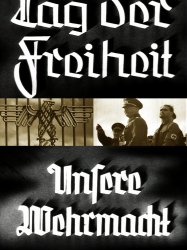
Day of Freedom (1935)
, 28minutesDirected by Leni Riefenstahl
Genres Documentary
Themes Politique, Documentary films about war, Documentary films about historical events, Political films
Rating61%





The film depicts a mock battle staged by German troops during the ceremonies at Nuremberg on German Armed Forces Day 1935. The camera follows the soldiers from their early-morning preparations in their tent city as they march singing to the vast parade grounds where a miniature war involving infantry, cavalry, aircraft, flak guns and the first public appearance of Germany's new forbidden tank is presented before Hitler and thousands of spectators.
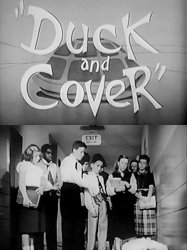
Duck and Cover (1952)
, 9minutesOrigin USA
Genres Documentary, Historical, Animation
Themes Films about animals, Medical-themed films, Politique, Films about drugs, Documentary films about law, Documentary films about health care, Mise en scène d'une tortue, Political films, Reptile
Actors Robert Middleton
Rating59%





thumbtime=47 The film starts with an animated sequence, showing an anthropomorphic turtle walking down a road, while picking up a flower and smelling it. A chorus sings the Duck and Cover theme:
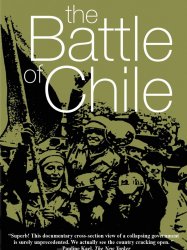
The Battle of Chile: Part I (1975)
Directed by Patricio Guzmán
Genres Documentary, Historical
Themes Seafaring films, Politique, Transport films, Documentary films about law, Documentary films about historical events, Documentaire sur une personnalité, Documentary films about politics, Political films, Films about Latin American military dictatorships
Rating80%





En 1973, alors que Salvador Allende initie un programme de transformations sociales et politiques visant à enrayer la pauvreté, la droite organise une série de grèves. Quand Allende obtient la majorité des suffrages en mars, la bourgeoisie comprend qu’elle ne peut plus avoir recours à des mécanismes légaux, et c’est le coup d’État.
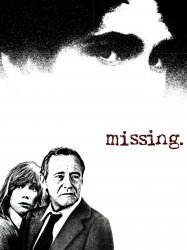
Missing (1982)
, 1h57Directed by Costa-Gavras
Origin USA
Genres Drama, Thriller, Documentary, Historical
Themes Seafaring films, Politique, Transport films, Political films, Films about Latin American military dictatorships
Actors Jack Lemmon, Sissy Spacek, Melanie Mayron, John Shea, Janice Rule, Charles Cioffi
Rating76%





The film opens with Costa-Gavras' statement that the events of the film are true.

The Queen (2006)
, 1h39Directed by Stephen Frears
Origin United-kingdom
Genres Drama, Biography, Documentary, Historical
Themes Politique, Political films, Films about royalty
Actors Helen Mirren, Michael Sheen, James Cromwell, Helen McCrory, Alex Jennings, Roger Allam
Rating72%





In the 1997 general election, Tony Blair (Michael Sheen) becomes Britain's Labour prime minister. However, the Queen (Helen Mirren) is wary of Blair and his pledge to modernise Britain, despite his promises to respect the Royal Family. Three months later, Diana, Princess of Wales dies in a car crash at the Alma Bridge tunnel in Paris. Blair's director of communications, Alastair Campbell (Mark Bazeley), prepares a speech in which Diana is described as the people's princess. The phrase catches on and millions of people across London display an outpouring of grief at Buckingham and Kensington Palaces. Meanwhile, the Royal Family is still at their summer estate in Balmoral Castle. Diana's death sparks division amongst members of the family, with some of the view that since Diana was divorced from Prince Charles (Alex Jennings) a year prior to her death, she was no longer a part of the royal family. They argue that Diana's funeral arrangements are thus best left as a private affair of her noble family, the Spencers. Charles, however, argues that the mother of a future king cannot be dismissed so lightly, and persuades the Queen to authorise the use of an aircraft of the Royal Air Force to bring Diana's body back to Britain.

The Eternal Jew (1940)
, 1h2Directed by Fritz Hippler
Genres Documentary, Historical
Themes Politique, Films about religion, Political films, Films about Jews and Judaism
Actors Charlie Chaplin, Harry Giese, Curt Bois, Fritz Kortner, Peter Lorre, Ernst Lubitsch
Rating45%





Le Juif éternel est une contribution à l’idéologie nazie. Il dépeint l’idée d’un complot international ourdi par les Juifs de l’Est (de nombreuses scènes ont été tournées en Pologne) et les Juifs de l’Ouest, dans la tradition des Protocoles des Sages de Sion. Il met tout en œuvre pour dépeindre les Juifs comme des sous-hommes et a pour but de montrer qu’ils sont un peuple auquel il faut s’opposer, dénonçant leur façon de vivre, leur histoire, leurs coutumes… Ainsi, le documentaire prétend dévoiler les véritables traits du « Juif éternel », d’après les nazis.
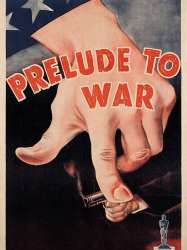
Why We Fight: Prelude to War (1942)
, 53minutesDirected by Frank Capra, Anatole Litvak
Origin USA
Genres War, Documentary, Historical
Themes Politique, Documentary films about war, Documentary films about historical events, Political films, Documentary films about World War II
Actors Walter Huston
Rating69%





In an edit added to the film before public release, a comment by Henry L. Stimson, the Secretary of War at the time, was quoted to create trust with the audience, “the purpose of these films is to give factual information as to the causes, the events leading up to our entry into the war and the principles for which we are fighting.”
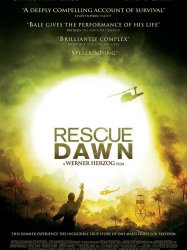
Rescue Dawn (2006)
, 2h5Directed by Werner Herzog
Origin USA
Genres Drama, War, Documentary, Action, Adventure, Historical
Themes Seafaring films, Politique, Prison films, Transport films, Aviation films, Political films, Disaster films, Films about aviation accidents or incidents, United States Armed Forces in films
Actors Christian Bale, Steve Zahn, Jeremy Davies, Marshall Bell, Toby Huss, Pat Healy
Rating72%





Dieter Dengler, a German-born U.S. Navy pilot in squadron VA-145, is shot down in his A-1 Skyraider over Laos in February 1966, while on a combat mission. He survives the crash only to be pursued, and ultimately captured, by the Pathet Lao. Dengler is given the chance for leniency by the Province Governor if he signs a document condemning America, but he refuses. He is tortured and taken to a prison camp. There he meets fellow American military soldiers and pilots, such as Gene DeBruin and Duane W. Martin, along with Y.C., Procet, and Phisit, some of whom have been captive for years. Dengler begins planning an escape, much to the disbelief of his fellow combatants, who have been downtrodden through physical and psychological torture by the camp guards.
 Connection
Connection